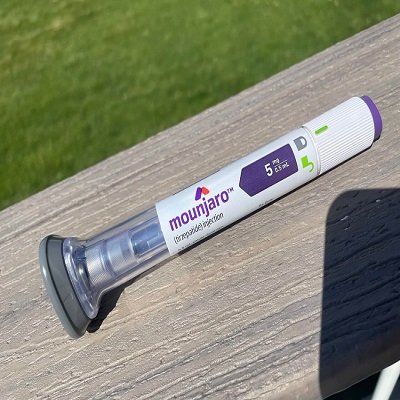
The rise of injectable treatments for weight loss and blood sugar management has gained a lot of attention in recent years. One of the most talked-about options is Mounjaro, an FDA-approved injection that has shown promising results in improving weight management and controlling type 2 diabetes. While it is effective, it’s not a magic solution. Alongside proper medical guidance and a healthy lifestyle, patients need to pay special attention to their dietary choices. For residents exploring this treatment, SKN Cosmetic Clinic offers expert consultation and administration of Mounjaro in a professional setting.
This blog dives deep into which foods to avoid when taking Mounjaro in Islamabad, and why dietary discipline is a crucial part of maximizing the results of this modern treatment.
Understanding How Mounjaro Works
Before discussing diet, it’s important to know how Mounjaro functions. Mounjaro belongs to a class of medications known as GIP and GLP-1 receptor agonists. It mimics natural hormones in the body that regulate insulin secretion, appetite control, and digestion.
This dual action not only lowers blood sugar levels in individuals with type 2 diabetes but also promotes weight loss by:
Slowing down digestion, which prolongs fullness.
Reducing appetite and food cravings.
Enhancing insulin response and glucose metabolism.
Because Mounjaro changes how the body digests food, consuming the wrong type of foods can interfere with its effectiveness and may cause uncomfortable side effects.
Foods to Avoid While Taking Mounjaro
1. Fried and Greasy Foods
Deep-fried snacks like samosas, pakoras, fries, and fried chicken are popular in Islamabad, but these can spell trouble when on Mounjaro. Greasy foods are difficult to digest, especially since Mounjaro slows down gastric emptying. This can lead to bloating, nausea, and stomach discomfort.
2. Sugary Foods and Beverages
Excess sugar in the form of mithai, cakes, desserts, and fizzy drinks spikes blood sugar levels. Since Mounjaro is designed to manage blood sugar, consuming high-sugar foods can counteract its benefits. Patients are strongly advised to cut back on desserts and processed sugary snacks to allow the medication to do its job.
3. Processed and Refined Carbohydrates
White bread, white rice, pasta, and packaged cereals may be staple comfort foods, but they lack fiber and are broken down quickly into glucose. This not only raises blood sugar levels but also leaves you hungry sooner, working against the appetite-suppressing effects of Mounjaro.
4. High-Fat Dairy Products
Full-fat cheese, cream, and butter-rich dishes may cause digestive distress for people using Mounjaro. Since the medication slows digestion, such foods can increase the feeling of heaviness and nausea. Switching to low-fat dairy options is often recommended.
5. Alcohol
Alcohol is best limited or avoided while using Mounjaro. It can cause fluctuations in blood sugar levels, sometimes leading to hypoglycemia (low blood sugar). Alcoholic drinks also add empty calories, slowing down weight loss progress.
6. Highly Processed Snacks
Chips, biscuits, and instant noodles are loaded with salt, preservatives, and unhealthy fats. Apart from raising blood pressure and cholesterol, they may interfere with the steady weight loss journey Mounjaro is designed to support.
7. Carbonated and Fizzy Drinks
Not just sodas, but even fizzy sparkling waters can sometimes increase bloating. Since Mounjaro already delays digestion, carbonation can make discomfort worse.
8. Spicy Foods (in Excess)
Islamabad is known for its love of spicy curries and flavorful gravies, but excessive spice can irritate the stomach and worsen nausea, a side effect some people experience with Mounjaro. While you don’t have to give up spices entirely, moderation is key.
Foods That Complement Mounjaro
Avoiding certain foods doesn’t mean you have limited choices. Patients on Mounjaro can improve their outcomes by focusing on:
Lean proteins such as chicken, fish, eggs, and lentils.
High-fiber foods like whole grains, oats, quinoa, and brown rice.
Fresh fruits and vegetables in moderate portions to provide essential vitamins and minerals.
Healthy fats from sources like olive oil, nuts, and avocados.
Plenty of water to stay hydrated and reduce digestive discomfort.
Why Dietary Discipline Matters with Mounjaro
Mounjaro is not a quick fix—it works best when paired with healthy lifestyle choices. Patients in Islamabad often report better results when they follow structured meal plans designed by nutritionists in coordination with their doctors.
Dietary discipline ensures:
Stable blood sugar control
Reduced gastrointestinal side effects
Faster and sustainable weight loss
Improved overall well-being
Lifestyle Tips to Maximize Benefits
Eat smaller, frequent meals instead of heavy large portions.
Chew food slowly to support digestion.
Stay active through light exercises such as walking or yoga.
Avoid late-night heavy meals which can cause bloating and discomfort.
Work with a professional to build a meal plan tailored to your needs.
Conclusion
While Mounjaro is an effective treatment for weight loss and type 2 diabetes management, its success depends greatly on your dietary and lifestyle choices. Avoiding sugary, fried, and highly processed foods can help reduce side effects and allow the injection to work effectively. By committing to healthier eating habits and medical guidance, patients can achieve long-lasting results.

